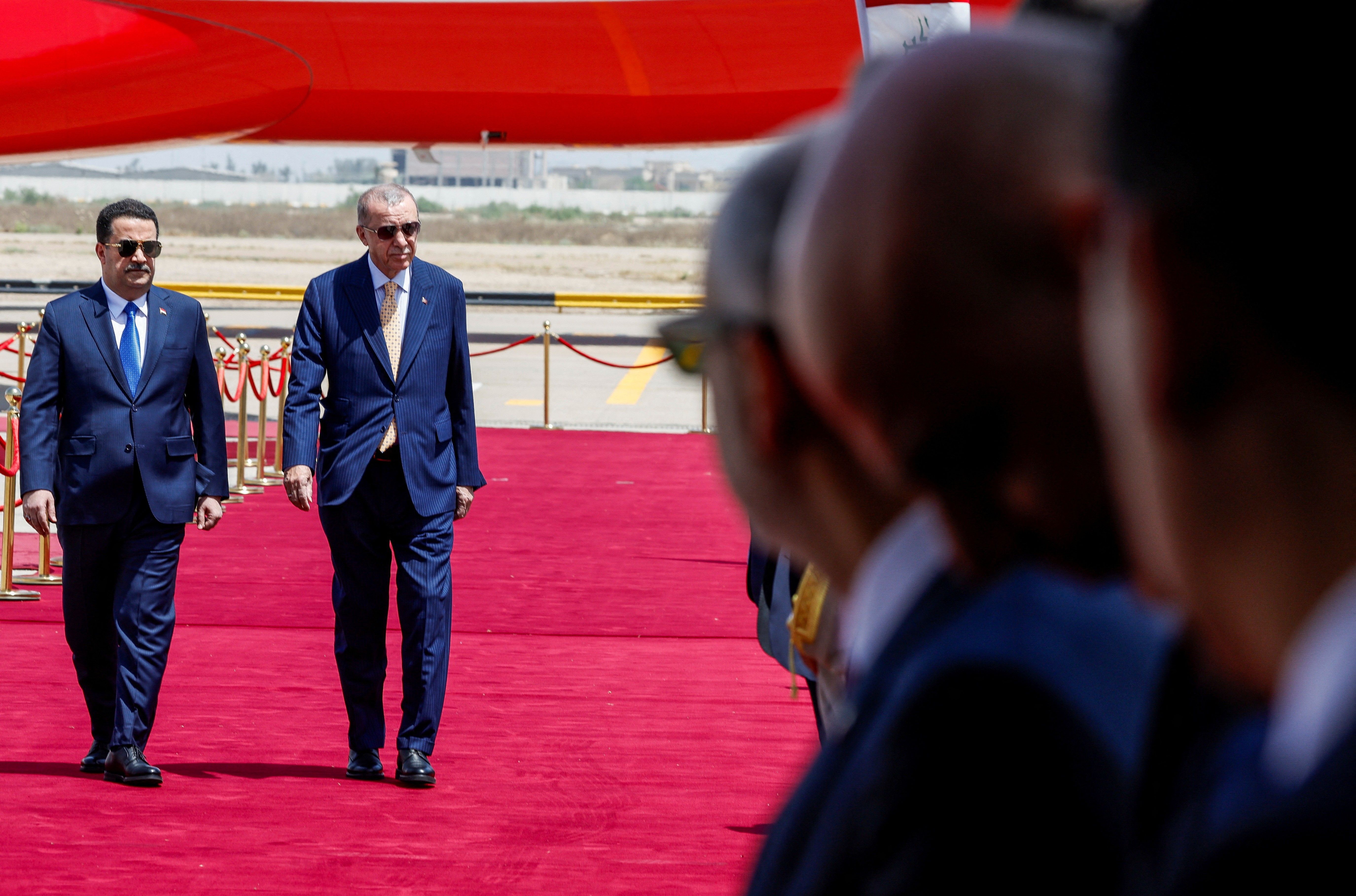Turkish President Recep Tayyip Erdogan visited Iraq Monday for the first time since 2011, marking a potential thaw in relations between the two neighboring countries, which have long clashed over Turkish attacks on Kurdish groups in Iraq’s north.
“For the first time, we find that there is a real desire on the part of each country to move toward solutions,” Iraqi Prime Minister Muhammad Shia’ al-Sudani said during a recent event at the Atlantic Council in Washington, D.C.
Sudani noted that the trip comes after more than a year of talks focused on addressing the biggest issues in the bilateral relationship. “For the first time, sensitive discussions are being held on every issue that represented barriers to the relationship,” he said. “And we agreed on all of these topics after a series of meetings and bilateral trips.”
The trip is a crucial part of the Sudani government’s efforts to stabilize Iraq and move forward from years of internal strife and war — a campaign made more urgent in recent weeks by escalating tensions in the region, as Iran and Israel’s shadow war has come out into the open.
Erdogan’s visit comes as Sudani returns from a week-long trip to Washington, where the Iraqi leader pitched a “new chapter” in U.S.-Iraq relations that could include a withdrawal of American troops from the country, which have become targets for Iraqi militias since the Gaza war began last year. He also sought new economic agreements and encouraged U.S. businesses to invest in Iraq.
Back in Iraq, Sudani and Erdogan were set to discuss enhanced cooperation to counter Kurdish fighters from the Kurdistan Worker’s Party (PKK), which Turkey and the U.S. consider a terrorist group. Turkey has for years mounted cross-border attacks on the PKK that have drawn backlash from the Iraqi government, citing sovereignty concerns.
In a notable shift, the two countries now say they are cooperating to fight the group. This will not, however, include joint military operations, according to Iraq’s defense minister. Questions remain about whether Iraqi officials are prepared to join Erdogan in his pledge to “permanently” destroy the organization in an operation later this year.
On the economic side, Sudani hopes the visit will lead to new agreements on trade to augment Iraq’s $17 billion “Development Road” project, which aims to increase Iraq’s capacity to serve as a transit hub for goods traveling between Asia and Europe.
Another deal will likely address the two countries’ shared water resources. Turkey controls the headwaters of the Tigris and Euphrates rivers, which provide most of Iraq’s freshwater, and Iraqi officials are hoping to persuade Turkish leaders to increase the amount of water that reaches their country.
- Iraqis: Don't use our country as a 'proxy battleground' ›
- Top Iraqi security official: Why can't we stop the war in Gaza? ›
















